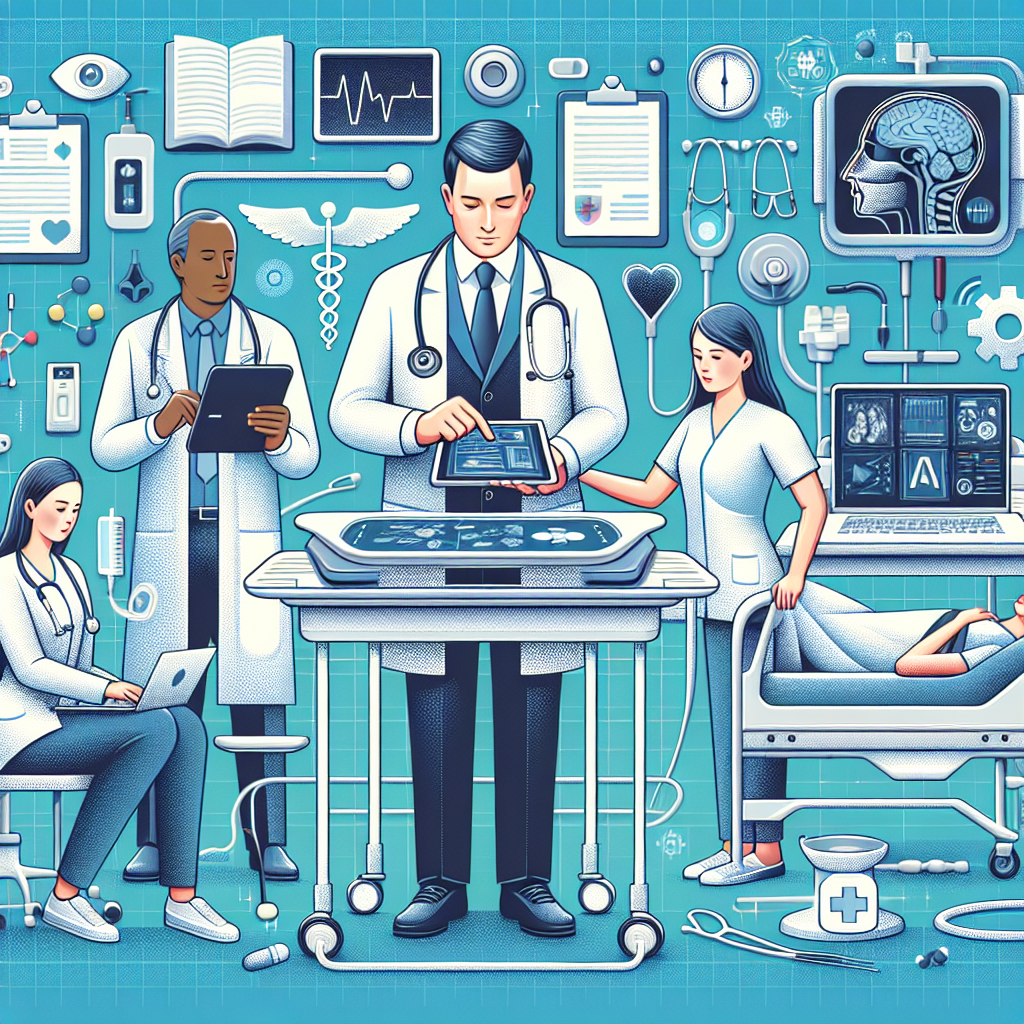AI Integration in Healthcare Clinical Integration
In recent years, the healthcare industry has seen a rapid advancement in technology, with artificial intelligence (AI) playing a significant role in revolutionizing the way healthcare is delivered. AI integration in healthcare clinical integration has the potential to improve patient outcomes, streamline processes, and reduce costs. In this article, we will explore the benefits of AI integration in healthcare clinical integration and how it is transforming the way healthcare is delivered.
Benefits of AI Integration in Healthcare Clinical Integration
1. Improved Diagnosis and Treatment: One of the key benefits of AI integration in healthcare clinical integration is its ability to improve the accuracy and speed of diagnosis. AI algorithms can analyze large amounts of data from various sources, including medical records, lab results, and imaging scans, to help healthcare providers make more informed decisions about a patient’s diagnosis and treatment plan. This can lead to earlier detection of diseases, more personalized treatment plans, and better outcomes for patients.
2. Enhanced Patient Care: AI integration in healthcare clinical integration can also improve the overall patient experience. For example, AI-powered chatbots can provide patients with round-the-clock access to healthcare information and support, helping them navigate the healthcare system more effectively. AI can also be used to monitor patients remotely, alerting healthcare providers to any changes in a patient’s condition and allowing for timely interventions.
3. Streamlined Processes: AI integration in healthcare clinical integration can help streamline administrative processes, such as scheduling appointments, billing, and coding. By automating these tasks, healthcare providers can free up more time to focus on patient care, leading to improved efficiency and productivity.
4. Cost Savings: AI integration in healthcare clinical integration has the potential to reduce healthcare costs by eliminating inefficiencies and reducing errors. For example, AI-powered predictive analytics can help healthcare providers identify high-risk patients and intervene early to prevent costly complications. AI can also help optimize resource allocation, ensuring that healthcare providers have the right staff and equipment in place to meet patient needs.
How AI Integration is Transforming Healthcare Delivery
AI integration in healthcare clinical integration is transforming the way healthcare is delivered in several ways:
1. Personalized Medicine: AI algorithms can analyze large amounts of patient data to identify patterns and trends that can help healthcare providers deliver more personalized treatment plans. By taking into account a patient’s unique genetic makeup, lifestyle factors, and medical history, AI can help healthcare providers tailor treatment plans to meet individual patient needs, leading to better outcomes.
2. Remote Monitoring: AI-powered devices and sensors can monitor patients remotely, collecting data on vital signs, activity levels, and medication adherence. This data can be analyzed in real-time to alert healthcare providers to any changes in a patient’s condition, allowing for early interventions and preventing hospital readmissions.
3. Predictive Analytics: AI integration in healthcare clinical integration can help healthcare providers predict and prevent disease outbreaks, optimize resource allocation, and improve patient outcomes. By analyzing large amounts of data from various sources, including electronic health records, lab results, and imaging scans, AI can help healthcare providers identify trends and patterns that can inform decision-making and improve patient care.
4. Enhanced Imaging: AI-powered imaging technology can help healthcare providers interpret medical images more accurately and efficiently. For example, AI algorithms can analyze X-rays, CT scans, and MRI images to detect abnormalities that may be missed by human radiologists, leading to earlier detection of diseases and more accurate treatment plans.
FAQs
Q: How secure is patient data in AI integration in healthcare clinical integration?
A: Patient data security is a top priority in AI integration in healthcare clinical integration. Healthcare providers must comply with strict regulations, such as HIPAA, to ensure that patient data is protected and secure. AI algorithms used in healthcare must also adhere to strict data privacy standards to prevent unauthorized access or misuse of patient information.
Q: How can healthcare providers ensure that AI algorithms are accurate and reliable?
A: Healthcare providers must rigorously test and validate AI algorithms before implementing them in clinical settings. This includes training algorithms on large datasets, testing them against gold standard diagnostic tests, and continuously monitoring their performance to ensure accuracy and reliability. Healthcare providers should also collaborate with AI developers and data scientists to ensure that algorithms are properly calibrated and optimized for clinical use.
Q: How can healthcare providers ensure that AI integration in healthcare clinical integration does not replace human clinicians?
A: AI integration in healthcare clinical integration is meant to complement, not replace, human clinicians. Healthcare providers should use AI as a tool to support decision-making and improve patient care, rather than as a substitute for clinical judgment. Human clinicians should always be involved in the decision-making process and should use AI algorithms as a guide to inform their decisions.
In conclusion, AI integration in healthcare clinical integration has the potential to revolutionize the way healthcare is delivered, improving patient outcomes, streamlining processes, and reducing costs. By leveraging the power of AI algorithms, healthcare providers can deliver more personalized care, enhance patient experiences, and optimize resource allocation. However, it is important for healthcare providers to ensure that patient data is secure, AI algorithms are accurate and reliable, and AI does not replace human clinicians. By carefully integrating AI into clinical settings, healthcare providers can harness the full potential of this technology to transform healthcare delivery for the better.

